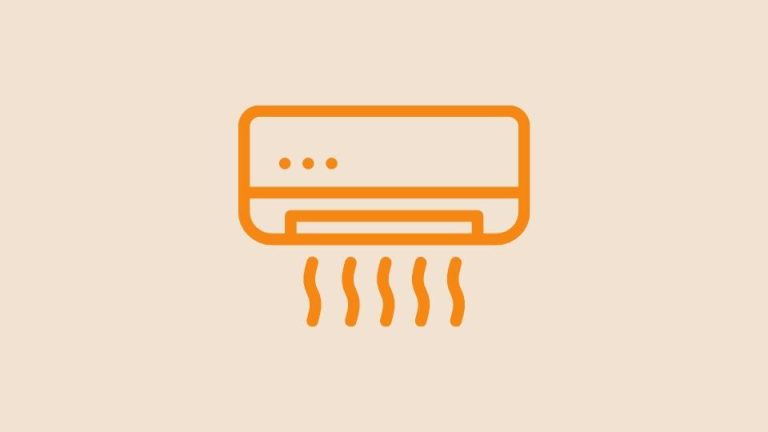How Can I Break My Lease without Penalty in Florida?
Circumstances beyond our control can alter after we sign a leasing agreement. As a renter, you may need to break the lease agreement for various reasons, including military service, health problems, or privacy violations. Tenants have certain rights under Florida rental regulations to terminate a lease without penalty for various reasons. But, understanding how these regulations function is crucial to prevent consequences such as forfeited security deposits, court proceedings, or landlord reprisal.
As a result, this article will review Florida rental regulations on breaking a lease, tenants’ rights to break a lease, and legal ways to end a lease arrangement without penalty. Knowing the legislation is followed by acting according to the established rules.
Florida Rental Laws on Breaking a Lease

Like other states in the United States, Florida has rules that govern terminating a lease arrangement. These rules are in place to safeguard renters who may need to cancel their lease due to circumstances beyond their control. For example, if a landlord violates a tenant’s privacy by visiting the rental property without proper notice, the renter has the legal right to terminate the contract without further repercussions. According to Florida Laws 83.53, landlords must notify tenants of their intent to enter the rental property at least 12 hours in advance, according to Florida Statute. According to Section 83.57, tenants must provide written notice before ending a lease arrangement. The length of the lease agreement determines the notice time and can range from seven to sixty days before the contract’s termination.
Certain instances, however, do not require a tenant to serve notice or suffer penalties for breaching a lease agreement. For example, the Servicemembers Civil Relief Act (SCRA) allows active service members transferred due to deployment or a permanent change of station to break the lease without penalty. Contemporary lease arrangements may also allow tenants to pay a fee to terminate their leases early. Yet, it’s critical to grasp these regulations and processes to be protected if you breach your lease agreement.
Tenant’s Right to Breaking a Lease in Florida

Tenants in Florida have some rights that allow them to break a lease arrangement without penalty. For example, if a tenant provides written notice and the landlord fails to perform essential repairs, the tenant has seven days to break the lease agreement without further penalty. Another scenario where a tenant may break a lease agreement without penalty is if the rental property is badly destroyed by an event beyond the tenant’s control, such as a hurricane.
Additionally, the Servicemembers Civil Relief Act (SCRA) covers active-duty service members relocated due to deployment or a permanent change of station. A renter must give proof that they signed the lease agreement before entering active duty and will continue on duty for at least the next 90 days to terminate the lease without risking legal consequences. In addition, the tenant must provide their landlord with a written notification backed by paperwork such as deployment or Permanent Change of Station (PCS) orders or a letter from their commanding officer.
Finally, Florida Statute Title VI, Chapter 83.67, safeguards tenants’ privacy rights against landlords. Tenants have the right to at least 12 hours notice before the landlord accesses the rented property, and any infringement of their privacy rights provides the tenant the right to terminate the lease. As a result, if your landlord is harassing you or breaching your privacy, you must understand your tenant’s rights to protect yourself legally.
Reasons for Breaking a Lease without Penalty
A call to military service
The Servicemembers Civil Relief Act (SCRA) protects active service members who are moved due to deployment or a permanent change of station. If a tenant is called to military service and must relocate, they may break the lease arrangement without penalty. This law applies to active-duty service personnel who signed the lease agreement before reporting on duty and will continue to serve for at least 90 days after breaking the lease.
Unsafe rental premises or violation of Florida health/safety codes
Unsafe Premises or Health Code Violations A rental property must be habitable, safe, and following Florida state health and safety laws. Suppose a tenant discovers a problem that creates a safety risk or necessitates a repair, such as a mold or gas leak, and the landlord fails to make the necessary repairs after multiple written notices. In that case, the tenant has the legal right to terminate the lease agreement without penalty.
The landlord invades the tenant’s privacy or harasses them
Violations of Privacy or Harassment by the Landlord Florida tenants have the right to privacy and should not be harassed by their landlords. For example, landlords should only access the rental property if they provide at least 12 hours notice to the tenant. Any violation of privacy rights entitles the tenant to terminate the lease agreement. As a result, if your landlord is harassing you or breaching your privacy, you have the right to terminate your lease agreement without penalty.
In general, tenants should be aware of their rights under Florida rental regulations before breaching a lease agreement for whatever reason. Tenants can protect themselves from legal fines and extra costs of breaking a lease contract by understanding the legal reasons for breaking a lease.
How to Break a Lease without Penalty
Breaking a lease agreement can be difficult, but Florida tenants have legal choices allowing them to end their lease without paying penalties. Here’s how to break a lease without paying the penalty:
Transfer the lease to another tenant
Move the Lease to Another Tenant. If your lease agreement allows it, you can transfer your lease to another tenant, transferring your lease obligations to the new renter. It is critical to thoroughly study your lease agreement to see whether the landlord enables lease transfer and to comprehend the rules and processes for transferring the lease to another tenant.
Talk with your landlord
Speak to Your Landlord An open and honest chat with your landlord may allow you to explain your situation and negotiate a mutually beneficial solution. If you must vacate your apartment early, your landlord may accept a buyout offer, work out a payment plan, or waive any fines. Recall that talking to the landlord about your uncertainty about ending the lease agreement will be okay.
Consider the termination offers
Consider Lease Agreement Termination Options Several modern lease arrangements allow tenants to quit their leasing agreement early for a penalty cost. Normally, there are agreed-upon terms for terminating the lease before the defined period finishes, such as the fee amount and the needed notification. When signing a lease agreement, thoroughly read it to grasp the precise conditions and termination offers.
Breaking a lease agreement can be difficult if not done correctly, and adhering to the legal criteria established by Florida rental regulations is critical. Tenants can protect themselves from legal fines and prevent unnecessary fees by learning the regulations and processes for breaking a lease.
Seeking Legal Advice After Breaking a Lease in Florida
Breaching a lease agreement without following the legal requirements might result in unfavorable outcomes such as losing your security deposit, legal proceedings, or the right to rent in the future. That is why, if you believe your landlord has broken Florida rental rules, you must take legal action and seek assistance quickly.
Landlords may take advantage of you as a tenant by charging you for violating a lease or offering an uninhabitable living space. On the other hand, tenants in Florida have special rights that protect them from such exploitation, and they can seek legal help to recover their losses or resolve any problems.
It is best to consult with a skilled attorney if you have particular issues concerning lease law or landlord-tenant law in Florida. An attorney may advise you on legal matters, explain your legal rights, enforce due process when terminating your lease, and represent you in court if necessary. Rental rules in Florida can be intricate, and skilled attorneys have the legal expertise and experience to overcome all legal stumbling blocks.
To summarize, breaking a lease agreement in Florida can be daunting, and tenants should be aware of their legal rights and procedures to avoid serious consequences. Tenants can defend their rights and resolve landlord-tenant issues by taking legal action or obtaining legal assistance.
Conclusion
Finally, for tenants in Florida, breaking a lease agreement can be a complicated and intimidating process. On the other hand, understanding the legal guidelines is vital to avoid unnecessary penalties and expenditures.
When ending a lease arrangement, tenants should know their legal rights and options. In rare circumstances, transferring the lease to someone else or negotiating a mutually beneficial settlement with the landlord may be possible. Similarly, obtaining legal counsel or taking legal action is critical if the landlord violates Florida rental laws. Remember that following these instructions and performing the essential measures will ensure a stress-free lease termination. Florida tenants can defend their rights and interests during the lease termination process by following the legal requirements and adopting practical steps.






